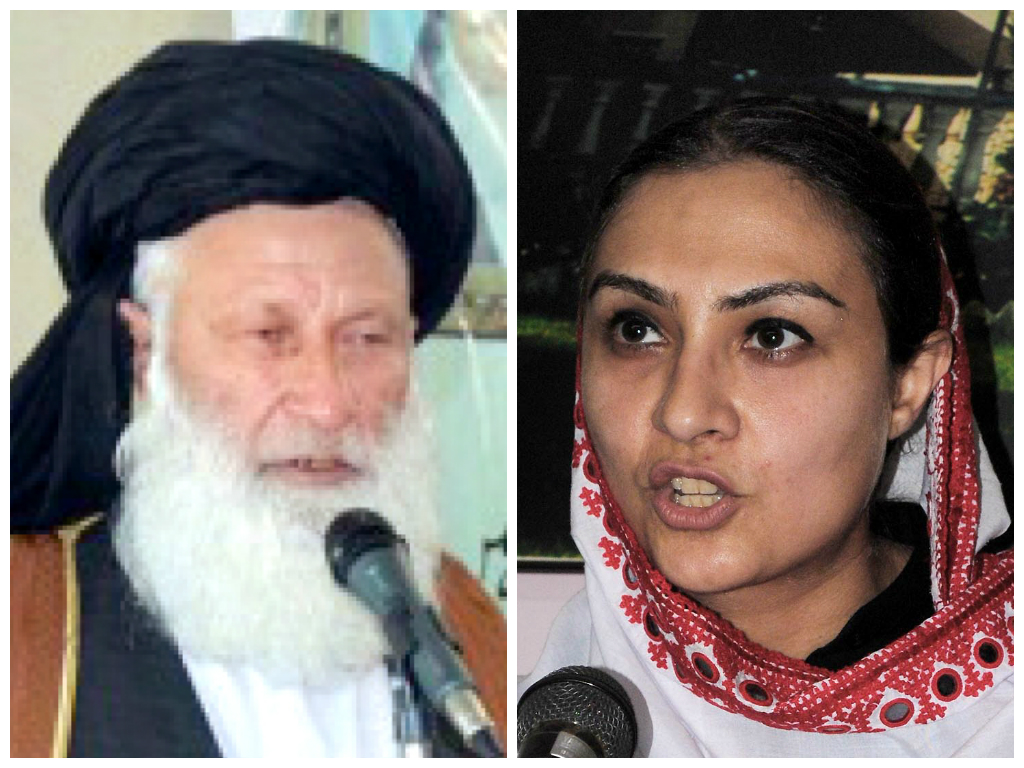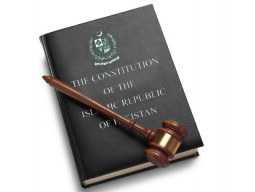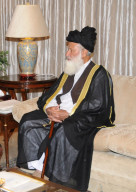
The CII had recently ruled that laws on child marriage were un-Islamic, but members from the ruling PML-N took an opposing stance on the floor of the National Assembly on Tuesday by proposing that punishment for those who contract and solemnize the marriage should be harsher.
The CII in its 191th meeting on March 10 had given the ruling that laws related to minimum age of marriage were un-Islamic and that children of any age could get married if they attain puberty.
The move in the National Assembly earned the ire of other members, most prominently Maulana Muhammad Khan Shirani, the chairman of the CII.
“The CII had already given its recommendations over the Act and it should have not come in the National Assembly,” said Shirani after Marvi Memon of PML-N introduced a bill seeking amendments in the Act.
Movers of the bill also include Asiya Naz Tanoli, Muhammad Pervaiz Malik and Shaista Pervaiz.
Shirani opposed the proposed amendments saying that they were contrary to Islamic teachings and laws. In order to substantiate his arguments, he quoted Article 2, 7 and 227 of the Constitution, several verses from Quran and Hadith and said that according to Islamic laws marriage can be solemnised when a girl attains puberty.
“Parliament could not legislate laws which are against the teachings of Quran and Sunnah,” he added.
Another JUI-F member, Moulana Ameer Zaman said that the issue should be referred to the CII further perusal and discussion.
Commenting over the issue, Minister for Religious Affairs Sardar Yousaf said that the bill be referred to the relevant standing committee for further deliberations as it was proposed by the Speaker NA.
However, SA Iqbal Qadri from the Muttahida Qaumi Movement [MQM] had a different take as he also opposed the idea of introducing the bill in lower house but on a different ground.
“After the passage of 18th Constitutional Amendment the subject [marriage] has become a provincial subject and the bill should not have come here,” he added.
Amendments proposed by the Bill
The bill had sought amendments in the Child Marriage Restraint Act, 1929 proposing six amendments in the existing laws.
The bill has proposed strict punishment through amendment which says “Whoever, being a male above eighteen years of age, contracts child marriage shall be punishable with rigorous imprisonment which may extend to two years, or with fine which may extend to one hundred thousand rupees, or with both.”
Before the amendment, the Act said that the punishment should be “simple”, may extend to “one month” and fine may extend to one thousands rupees.
Similarly, the punishment for solemnizing the child marriage has been suggested to be “rigorous” instead of “simple”, for “two years” instead of existing “one month” and the fine should be “one hundred thousands” instead of one thousands.
The bill has also proposed three substitutions in section 8, 9 and 12. Substation in section 8 reads “Jurisdiction under this Act:- The Family Court, established under section 3 of the West Pakistan Family Court Act 1964 (No.XXXV of 1964) shall exercise jurisdiction under this Act and may take cognizance of an offence in the manner provided by section 190 of the code of Code of Criminal Procedure 1898 (No. V of 1898).”
Substitution of Section 9 says that offences under this Act shall be cognizable “All offences under this Act shall be cognizable; such cognizance shall in no case be taken after the expiry of one year from the date on which offence in alleged to have been committed.”
The final amendment proposed substitution of Section 12 that relates to Power to issue injunction prohibiting marriage “(1) Notwithstanding anything to the contrary contained in any other law, the court may, if satisfied from information laid before it through a complaint or otherwise that a child marriage in contravention of this Act is going to be arranged or is about to be solemnized, issue an injunction prohibiting such marriage. (2) Whoever, knowing that an injunction has been issued against him under sub-section (1) of this section, disobeys such injunction, shall be punished with imprisonment of either description for a term which may extend to one year with fine which may extend to one hundred thousand rupees, or both.”
COMMENTS (20)
Comments are moderated and generally will be posted if they are on-topic and not abusive.
For more information, please see our Comments FAQ













































@codamred: In Pakistan only a male can contract a marriage. Women do not have such rights. You need to read a bit more about Pakistan before crying gender discrimination against men here.
Why are Indians trolling ?? Child marriage (baal vivaah) happens all over India, in every nook and corner of the country.
You go girl!
Child marriage is cruel - girls ought to be in schools, learning, hopefully enabling them to earn a livelihood. When ready for marriage, they would apply education to health, diet issues, their offspring better off, plus provide to the home economy. Through education, they would be able to decide whether to have three children or nine, they would become mothers at a later age which would be good for their own health, improving gender equality. These mullahs ought not to be allowed to interfere in Pakistan's policies for the welfare of its citizens, especially women. President Carter has recently had a book published on gender inequality in the world, and blames religion whether Christianity or Islam or others for the unfairness meted out to women.
http://www.theguardian.com/books/2014/mar/24/jimmy-carter-call-to-action-women-girls-abuse
Make a new constitution, update the outdated resource or this country is gonna become obsolete like its laws. The whole brouhaha here is due to conflicting and rigid unnatural laws.
How long I say how long we will continue to be guided by social customs of a society that existed hundreds of years before. On this basis the world is still to be taken as flat and sun moon and stars be going around the earth. We should not be flying warplanes or using modern medicines. Heart transplant or kidney transplant of one human being to the other should be sin of highest order and no mullah, pundit or padri should take this treatment of transplant. Let us follow with utmost reverence the spiritual teachings and not the customs of an era gone.